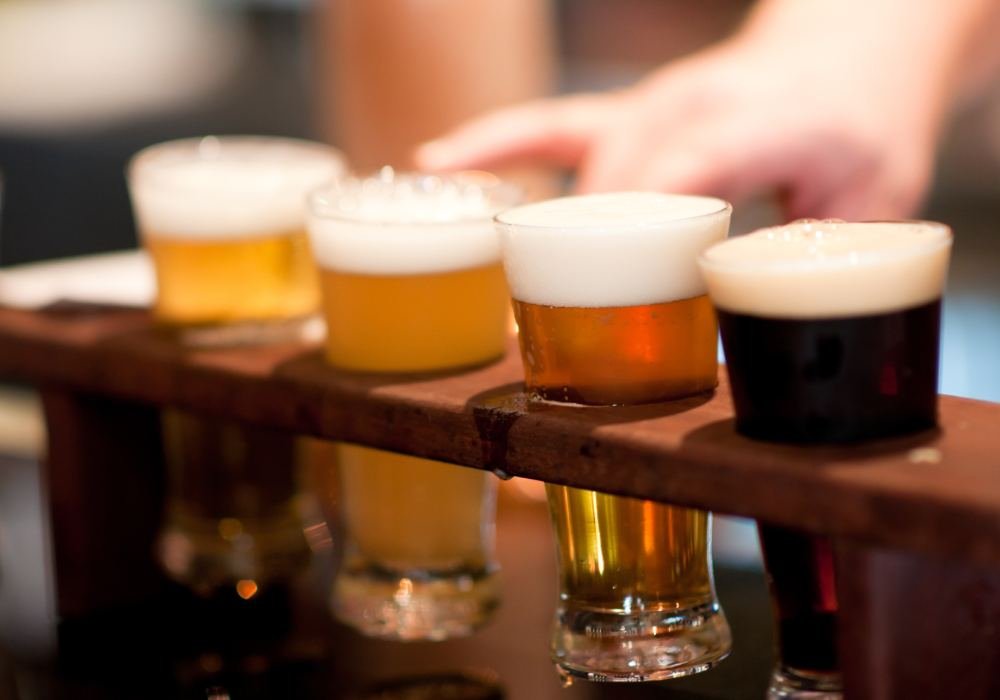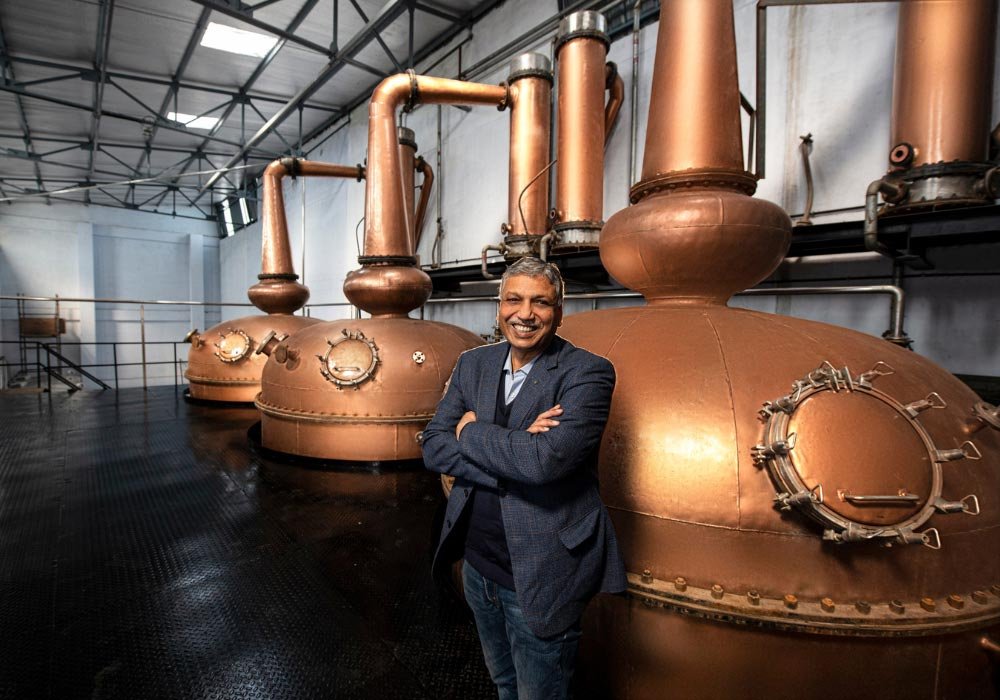
Beer is a beverage that transcends boundaries and enriches human cultures. It is a symbol of social connection, tradition, and innovation. Whether at a festival, a pub, or at home, beer brings people together and fosters intercultural dialogue.
History of Beer
[caption id="attachment_30119" align="alignleft" width="369"] Image Source: beertourism.com[/caption]
Image Source: beertourism.com[/caption]
For over 1000 years, beer has been associated as a symbol of social bonding, celebration, relaxation, or rebellion, depending on the context and perspective. It is considered one of the defining drinks in history, with the first known beer dating back to almost the 5th millennium BC, making beer one of the oldest drinks in the world. It is not clear whether the beer was discovered or invented. Still, early writings indicate that when the nomadic tribes started settling down and domesticated the art of gathering wild grains after the last ice age, around 10,000 BCE, beer was a by-product of agriculture. The earliest findings of the fermentation of beer consist of 13,000 years old residues of beer used by the semi-nomadic tribes called 'Natufians' for ritual feasting in the Carmel Mountains in current-day Israel. Ancient Egypt and Mesopotamia have written records of beer use, with the oldest surviving beer recipe dedicated to Ninkasi, the goddess of brewing. China also brewed beer-like beverages around 7000 BCE, while Mesopotamia consumed beer as a daily dietary staple. Beer became vital to all grain-growing civilizations from Eurasia to North Africa, including Egypt.
Symbolism and Mythology Shroud the Famed Beer
The famed beer has its own share of myths, like the mythical Flemish king Gambrinus being the inventor of beer. Czech legends attribute the invention of beer to their god of hospitality, 'Radegast.' The Irish, on the other hand, claim that beer was invented by the fabled Irishman Charlie Mops. In Norse mythology, Aegir, the sea god, along with his wife and nine daughters, brewed beer for all gods for a party he was hosting for them. All mythology draws everyone to one conclusion – that beer is associated with celebration, hospitality, friendship, and relaxation.
Beer was a symbol of civility and culture in the ancient world.
- In ancient Egypt, beer was associated with Osiris, the god of death and resurrection, and was used in funerary rites and offerings to the dead. Grain and beer were regarded as the basis of all life, so much so that 'bread and beer' was an expression of good luck and prosperity.
- In Norse mythology, beer was brewed by the Aesir gods and was a source of wisdom and inspiration. Odin obtained the mead of poetry, a type of beer, by tricking the giant Suttung and his daughter Gunnlod.
- In medieval Europe, beer was a staple of everyday life and a source of nutrition, especially for the poor. In colonial America, beer symbolized independence and resistance against British taxation.
Societies across the globe celebrate the art of brewing, making beer a cherished cultural symbol.
Diverse Brewing Techniques
The beer production process may have been discovered accidentally or intentionally through fermentation. Beer was significant in various cultures. Today, the brewing industry is a global business with different regions that have developed distinctive methods, ingredients, and beer styles. For example, in Europe, lagers and ales are common, while in Asia, rice beers and sake are more prevalent. In Africa, sorghum and millet beers are traditional, while corn and barley beers are popular in the Americas. Some beers are flavoured with herbs, spices, fruits, or hops, while others are fermented with wild yeasts or bacteria. The diversity of beer reflects the cultural and environmental influences of each region.
Cultural Exports
The varied beer styles have become cultural ambassadors, representing their countries on the global stage. From grand beer festivals in Europe to vibrant gatherings in Asia, these events highlight the diversity of beers and the customs associated with their consumption.
- German beers are famous for their purity and quality, following the strict Reinheitsgebot law that dates back to 1516. You can enjoy the famous German beer at the world-renowned Oktoberfest, a testament to the nation's deep-rooted tradition of merrymaking and camaraderie around beer.
- Meanwhile, Singapore's Beerfest Asia attracts thousands of enthusiasts, showcasing the region's growing appreciation for this beloved beverage.
- St. Patrick's Day is an Irish holiday commemorating Ireland's patron saint and featuring green beer and pub crawls.
- British beer festivals, organized by various entities, exemplify a dedication to real ale and emphasize variety and quality.
Some beer styles have become so popular and distinctive that they are recognized as symbols of their countries of origin. For example, Belgian beers are known for their complex and diverse flavours, reflecting the rich and varied heritage of the country. Irish beers are associated with dark and creamy stouts, such as Guinness, that embody the spirit and character of the people. These are just some examples of how beer styles can be cultural exports, representing their countries on the global stage. As cultural diversity continues to thrive, these beers and the associated celebrations reflect the power of intercultural dialogue and contribute to global harmony and sustainable development.

Art and Literature
Beer has marked its place in social gatherings and is a source of inspiration and influence for many artists, writers, and cultural figures. In art, beer is used to depict scenes of everyday life, such as in the paintings of Pieter Bruegel the Elder or Jan Steen. In literature, beer can be associated with humour, satire, or realism, such as in the works of Geoffrey Chaucer, Mark Twain, or Charles Bukowski. In popular culture, beer reflects the values and identities of different groups, such as in the movies of Quentin Tarantino, the songs of Tom Waits, or the commercials of Budweiser.
Economic Impact
The beer industry is an economic powerhouse. ‘It was found that 1 in every 110 jobs globally is linked through direct, indirect or induced impact channels to the beer sector and that its total economic impact amounted to $555 billion of gross value added to the global GDP.’* Beer production is a leading job creator directly and indirectly. The direct impact of beer on the economy is through brewing, marketing, distributing, and selling beer. The indirect impact is the supply chain that provides goods and services to the beer industry. Therefore, beer is not only a drink but also a factor that shapes the economy and society of different regions and countries.

Future trends
Here are some possible trends that could shape the culture of beer in the years to come -
- Craft beer is seeing a surge in popularity and diversity as more people seek out unique and local flavours. Craft breweries are experimenting with new ingredients, styles, and techniques to create distinctive beers that reflect their identity and values.
- Beer consumption occasions are becoming more relaxed but with a more responsible approach.
- Breweries are becoming more sustainable and environmentally friendly as consumers demand more transparency and responsibility from the producers. Beer makers use renewable energy, organic ingredients, biodegradable packaging, and water conservation methods to reduce their environmental impact and appeal to eco-conscious drinkers.
About The Author
 Vedant Kedia, Chief Growth Officer, Associated Alcohols & Breweries Ltd.
Vedant Kedia, Chief Growth Officer, Associated Alcohols & Breweries Ltd.
The 25-year-old is a dynamic leader hailing from a family with a rich legacy in the alco-bev industry. He possesses great leadership skills along with a deep knowledge of various industry trends that help in the overall growth and development of the company. With his attention to detail and passion for storytelling, Vedant leads marketing efforts to connect with customers and drive business growth.













